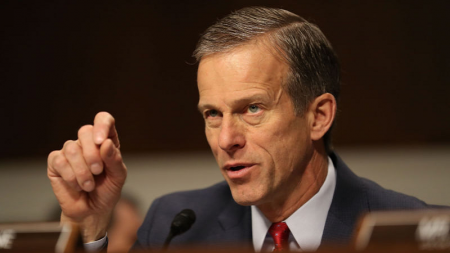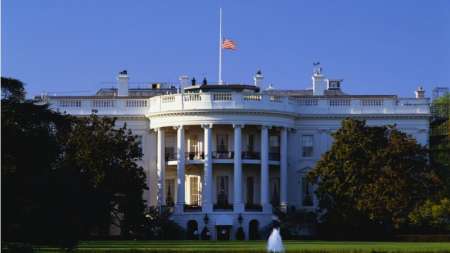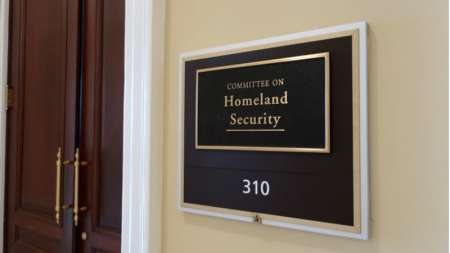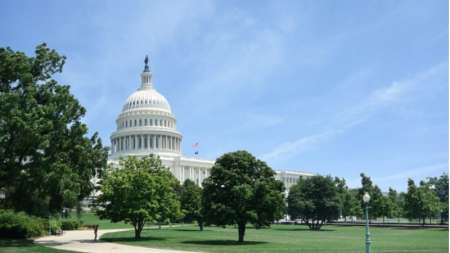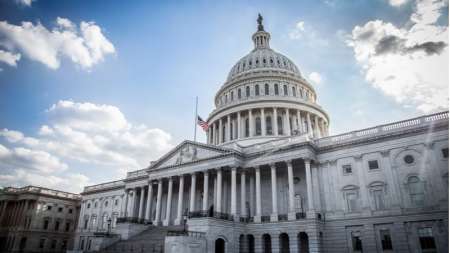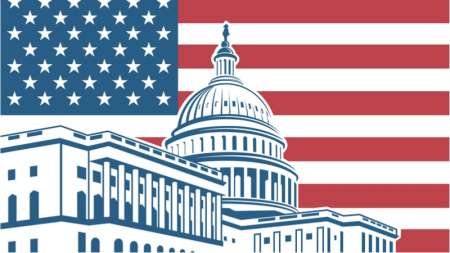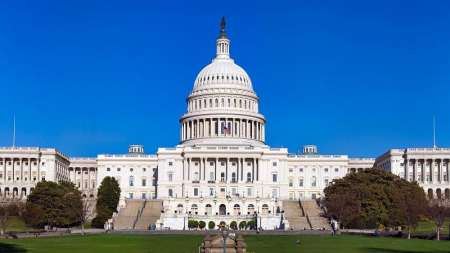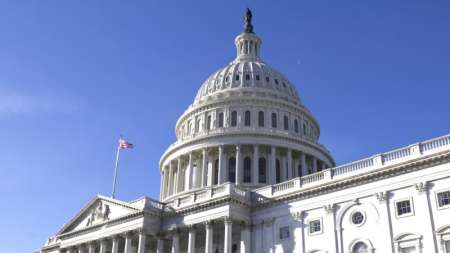Legislation introduced in the House and Senate this week aims to speed development of the Defense Department’s (DoD) Joint All-Domain Command and Control (JADC2) initiative – one of the Pentagon’s top modernization priorities. […]
Sen. Amy Klobuchar, D-Minn. – long a champion of tech and cyber bills on Capitol Hill – in the last few months has teamed up with a bipartisan group of lawmakers to generate momentum for several pieces of AI legislation in the Senate that she sees gaining serious legislative traction early next year. […]
Sens. John Thune, R-S.D., and Amy Klobuchar, D-Minn., are spearheading new artificial intelligence legislation that would aim to protect both consumers and entrepreneurs, and task the Commerce Department with new regulatory work. […]
The White House is working closely with Congress to develop legislation that would establish a Cyber Workforce Development Institute, as directed by the Biden administration’s National Cyber Workforce and Education Strategy. […]
The years-long debate of whether or not AI governance should be centralized within one Federal entity stepped back into the limelight Wednesday as lawmakers scramble to craft a bipartisan, comprehensive legislative package on the emerging technology and try to push it over the finish line. […]
Just days after President Biden signed a new executive order (EO) on AI, two senators introduced a bill to give that White House measure more teeth. […]
An AI industry expert called on Congress this week to pass comprehensive Federal legislation that covers a wide range of risks associated with the emerging technology, arguing that state and local government action to create AI-related laws will only stifle innovation. […]
Senate Majority Leader Chuck Schumer, D-N.Y., said today that Federal government investment in the artificial intelligence arena is being reckoned at a minimum of $32 billion based on consensus emerging from the Senate’s second in a series of AI forums held on Oct. 24. […]
The Senate Homeland Security and Governmental Affairs Committee (HSGAC) approved the Improving Government Services Act today by a vote of 10-1, with only Ranking Member Rand Paul, R-Ky., voting against the measure. The bill now heads to the Senate for further consideration. […]
Senate Minority Whip John Thune, R-S.D., is actively working to introduce a “light touch” artificial intelligence bill that would aim to protect both consumers and entrepreneurs, a Senate source familiar with the legislation confirmed to MeriTalk. […]
Sens. Steve Daines, R-Mont., and Jacky Rosen, D-Nev., introduced bipartisan legislation on Sept. 21 that aims to modernize and streamline the adoption of cloud computing technology in Federal agencies. […]
A new bipartisan House bill is calling on four Federal agencies to draft a roadmap for implementation of multi-cloud software technology with an aim to ensuring secure, widespread use across the government. […]
The House this week approved by voice vote the Securing Semiconductor Supply Chains Act – a bipartisan bill that would strengthen Federal efforts to expand domestic manufacturing of semiconductor chips. […]
A bipartisan bill to establish an Office of Policy Development and Cybersecurity at the National Telecommunications and Information Administration (NTIA) passed the House on a voice vote this week. […]
Sens. Edward Markey, D-Mass., and Ted Budd, R-N.C., introduced two pieces of bipartisan legislation this week that would empower the Federal government to better understand the public health security risks of artificial intelligence (AI) technologies. […]
The House on July 14 narrowly approved its version of the National Defense Authorization Act (NDAA) for fiscal year 2024 by a margin of 219-210, after voting on amendments offered by lawmakers – condensed from more than 1,500 to 370 – earlier in the week. […]
Rep. August Pfluger, R-Texas, introduced legislation this week that would establish a Digital Economy and Cybersecurity Board of Advisers at the National Telecommunications and Information Administration (NTIA). The bill comes as lawmakers are working to reauthorize the NTIA – a Commerce Department component – for the first time since 1992. […]
Rep. Katie Porter, D-Calif., reintroduced the Accountability for Acting Officials Act last week – co-sponsored by nine other House Democrats, including Reps. Gerry Connolly, D-Va., Jamie Raskin, D-Md., and Bennie Thompson, D-Miss. – that would make a series of changes with respect to the appointment, tenure, and qualifications of acting officials of executive agencies. The June 30 legislation aims to […]
Sen. Benjamin Cardin, D-Md., introduced legislation on June 22 focused on helping veteran small business owners increase their likelihood of procuring Federal contracts. […]
Senate Majority Leader Chuck Schumer, D-N.Y., unveiled his SAFE Innovation Framework for Artificial Intelligence (AI) today, saying that the framework will help lead the way for the development of Federal AI policy within “months.” […]
The House Transportation and Infrastructure Committee Wednesday approved bipartisan legislation to reauthorize the Federal Aviation Administration (FAA) and aviation safety and infrastructure programs for the next five years, by a unanimous 63-0 vote. […]
President Biden signed the NOTAM Improvement Act into law over the weekend, which requires the administrator of the Federal Aviation Administration (FAA) to establish a task force to provide recommendations for improvement of the agency’s Notices to Air Missions (NOTAM) system. […]
A bipartisan group senators wants to authorize cybersecurity cooperation between the Department of Homeland Security (DHS) and nations that have signed onto the Abraham Accords countries through a new piece of legislation introduced on May 31. […]
A bipartisan group of House members on May 24 introduced a resolution to establish a bipartisan Commission on Evidence-Based Policymaking. […]
The Senate Homeland Security and Governmental Affairs Committee on May 17 voted to approve three bills that would increase oversight of Federal government software contracts, create an artificial intelligence training program for Federal officials, and gather cybersecurity best practices for the satellite sector. […]
A group of senators introduced bipartisan legislation this week that aims to reform the security classification system to reduce overclassification, prevent mishandling of classified information, promote better use of intelligence, and enhance public trust – including investing in new technology to do just that. […]
Matthew Cornelius, who for the past 20 months has been a high-energy force – mainly behind the scenes – for a good deal of the IT and cybersecurity legislation that has come out of the Senate Homeland Security and Governmental Affairs Committee (HSGAC), pulled up stakes last week and departed government service. […]
Rep. Yvette Clarke, D-N.Y., reintroduced a bill last week that requires the Department of Homeland Security’s (DHS) Science and Technology (S&T) arm to have a more direct hand in the research and development (R&D) of activities concerning climate change. […]
House members are reaching across the aisle to help accelerate quantum technology development by creating a “quantum sandbox” for that purpose, according to a new bill from Reps. Jay Obernolte, R-Calif., and Haley Stevens, D-Mich. […]
The Federal government was busy not only talking about AI last year, but also turning that enthusiasm into record spending levels on the emerging technology. […]



